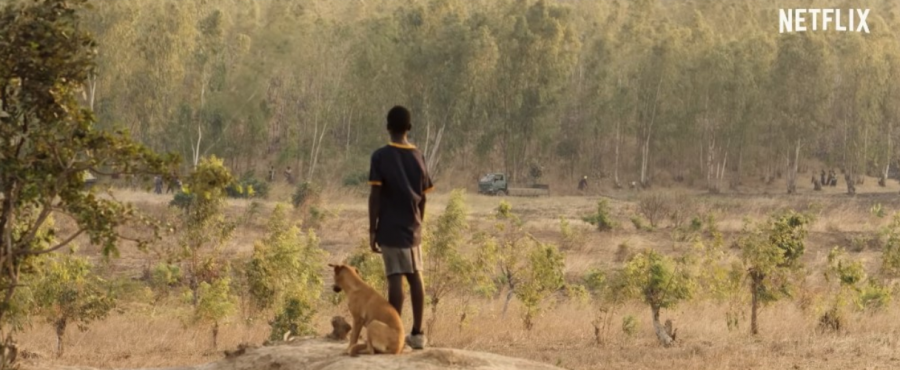“The Boy Who Harnessed The Wind” endears audiences with remarkable true story
If you are looking for a simple yet emotional biopic featuring a stellar cast, “The Boy Who Harnessed The Wind” is a great choice.
“The Boy Who Harnessed The Wind” is a Netflix movie (in select theaters as well) that is based on the book by the same title. The novel, by William Kamkwamba, is the unbelievable true story of how the author created a wind turbine in his village that brought electricity and water to his people.
In 2006, citizens of Wimbe, Malawi had been suffering a long dry season and were fighting over grain while starving to death. Others simply left in search of food. William (Maxwell Simba) put an end to this when he gathered parts of his father’s bicycle and attached them to pieces of blue gum trees and various scraps of metals and wire from their junkyard.
“The Boy Who Harnessed The Wind” is a film that moves and inspires and that tells a tale like no other. The characters are well developed and the acting is strong. Unique music and the use of purposeful silence serves the story well.
However, the movie is quite long for what it is and struggles to hold the viewer’s attention as the majority conflict and resolution reside in the last 40 minutes of the film. In the first hour and 20 minutes, not much of note occurs, and people are less likely to wait for the strong ending.
Aïssa Maïga does a stunning job portraying Agnes Kamkwamba, Will’s mother. Agnes struggles to work, take care of her new baby and support her husband and older children. When Annie (Lily Banda), William’s older sister, raises her voice at her father because he tried to leave them in attempt to find more grain, Agnes slaps her daughter for being dramatic. She says, “You think I’d let you starve to death? When I cut off my own arm to feed you, then you’ll know that you’re my child.” The whole film was powerful, but especially this character.
Banda’s performance was also exceptional in this scene; her mother’s hit softens her face and Annie appears more childlike and you remember that she is still young and confused. Her fear of her mother mirrors that of William’s fear of his father, Trywell (Chiwetel Ejiofor) and this unity displays a little of what their culture is like.
When the family realizes Trywell had only made enough grain for one meal a day, he threatens William if he feeds their family dog. Watching these scenes made me feel the same fear that the characters were experiencing. The dog later died of starvation.
This moment felt meaningful; not only did the child lose his best friend, but the dog symbolizes the suffering of the Wimbe people It’s made visually apparent when the camera zoomed in on William resting his crying face on the dog’s chest and you notice how visible the dog’s rib-cage becomes.
Ejiofor, who is also the screenwriter and director, really brings Trywell to life on screen. He creates an expressive and nuanced character. We, as viewers, truly feel like we can see his internal conflicts. Ejiofor grapples with having to decide between leaving to try to get more grain or remain with his soon to be starving family.
When all hope seemed lost, William trusted his instincts and knowledge; although this part takes a while to get to, it is really beautiful to watch. As the townspeople are coming together gather materials for the wind turbine and build it, I could see the desperation in Ejiofor’s eyes. When clean water comes out of the ground, the villagers eyes fill with happy tears and this moment moved me. Despite a few drawbacks, The Boy Who Harnessed The Wind is a heartfelt family drama that is worth watching.






















































